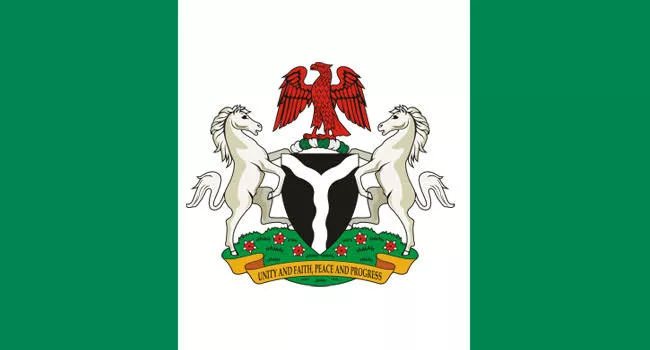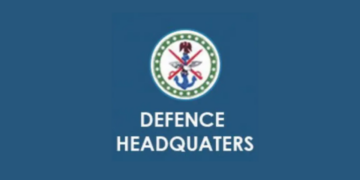The current practice of allowing revenue-collecting agencies to keep a percentage of their total collected revenue is no longer proper, according to the Agora Policy, an Abuja-based think tank.
Agora Policy said the cost of collection should be jettisoned for a more transparent, prudent, and accountable approach.
Data released by the think tank revealed that the three revenue collection agencies’ cost of collection from the Federal Accounts Allocation Committee (FAAC) surpassed the allocation given to four geopolitical zones in January 2024.
The Federal Inland Revenue Service (FIRS) receives four percent of non-oil revenues; the Nigerian Upstream Petroleum Regulatory Commission (NUPRC) gets four percent of royalties, rents, and other revenues from the oil and gas sector, and the Nigeria Customs Service (NCS) receives seven percent of customs duties and levies.
Each also collected more than the monthly allocation of no fewer than 30 states in the country.
In a policy note entitled ‘Why Nigeria’s Cost-of-Collection Approach is no Longer Tenable,’ the think tank said the idea of centrally collecting taxes and revenues remains sound as this allows for ease and efficiency of collection and administration.
However, it said the cost-of-collection approach for revenue collection is a flawed idea that enables abuse, distortions, distractions, and wasteful expenditure.
The firm said a review of the fully disaggregated data on FAAC disbursements, as published by the National Bureau of Statistics (NBS), highlights some of the incongruities that the arrangement has created.
For January 2024, the cost of collection received by the three agencies (N78.30 billion) was higher than the gross FAAC allocations to each of the four geo-political zones in the country: North East (N56.60 billion), North-Central (55.58 billion), North-West (N76.09 billion) and South-East (N47.75 billion). The South-South and South-West got more than what the three agencies received only on account of 13 percent derivation for the oil-producing states and the allocation of N21.28 billion as the net allocation to Lagos State for Value Added Tax (VAT).
While the three agencies received N78.30 billion as the cost of collection for January 2024, the gross allocations to the six geo-political zones for the same month were as follows: N56.60 billion for the North-East; N55.58 billion for the North-Central; N76.09 billion for the North-West; N47.75 billion for the South-East; N141.85 billion for the South-South, and N86.60 billion for the South-West.
According to the data, FIRS received N43.35 billion as the cost of revenue collection in January, which is more than what 36 states received as FAAC allocation, while NUPRC’s receipt of N18.68 billion was topped by only five states.
NCS’s receipt of N16.27 billion as the cost of collection was also more than what 31 states received as FAAC allocation. The Agora Policy research report, which noted that the cost of collection as received by these agencies is no longer tenable, pointed out that the cost of collection had risen over the years.
According to the report, in February 2019, the gross FAAC revenue was N619.86 billion and the total cost of collection was N13.58 billion, or 2.19 per cent of the gross allocation.
“In January 2024, the gross revenue was N2.07 trillion while the three agencies received N78.30 billion, or 3.79 per cent of it. On the face of it, the absolute value of the cost of collection is merely rising with the gross revenue, but this is not exactly so: while the gross revenues between February 2019 and January 2024 increased by 234 per cent, the cost of collection for the same period increased by 477 per cent.
“In February 2019, the amount received by the three agencies was only 5.27 percent of the N257.68 billion that the federal government got as gross revenue from FAAC. By contrast, what the agencies got as the cost of collection in January 2024 was 19.22 percent of the N407.27 billion that the FG received that month.
“Also, what the three agencies received was 7.99 percent of what all the 36 states got in February 2019, but they received 20.63 percent of what the states got in January 2024; and while they received 10.63 per cent of what the 774 LGAs received in February 2019, they got 28.16 per cent of what the LGAs received in January 2024.
“So, the cost of collection has increased more than the corresponding proportion than the gross revenue. If the cost of collection had remained at the 2.19 per cent level of February 2019, the sum of N45.33 billion (instead of N78.30 billion) would have been due to the agencies as the cost of collection in January 2024. This means that the agencies would have received 42.11 per cent less than they did this January,” it pointed out.
Also, the data shows that the agency that got the lowest amount in February 2019 was NUPRC, which received N3.19 billion. None of the 36 states got lower than that. Also, all the zones got higher amounts than the three agencies combined in February 2019. This contrasts sharply with January 2024 when each of the 31 states received amounts lower than the agency that got the lowest cost of collection (which in this case was NCS with N16.27 billion), and when each of the four geo-political zones received amounts lower than what the three agencies got as cost of collection.
The research said the 2024 proposed budget of government-owned enterprises (GoEs) is replete with examples of wasteful expenditure. In its 2024 proposed budget, NCS proposed to spend N451.65 billion or 99.18 per cent of its projected revenue of N455.39 billion while FIRS planned to spend the entirety of its projected revenue of N356.95 billion. (The final appropriation for FIRS for 2024 was N446.34 billion, which must have included its internally generated revenue. Only 12 states of the federation have budgets higher than this amount in 2024.
Agora Policy said the cost of collecting revenue by the GoEs should be reviewed.
“One glaring issue is that the increase in revenue is not necessarily a product of increased efforts. The three agencies (NCS, FIRS and NUPRC) will rake in more money and collect higher commissions simply because of the depreciation of the value of the Naira, which is the effect of monetary policy. This is basically rent transfer,” the think tank said.
“Two, these agencies are getting more allocations at the expense of others, including states and zones that have millions of citizens to cater for and a slew of challenges to tackle.
“Three, giving agencies a portion of the revenue that passes through them has created a perverse incentive where they prioritise revenue collection and de-emphasise the other parts of their work even if at a cost to the larger economy.
“The fourth issue is that most government agencies want to become commission agents or revenue-generating agencies. This distracts them from their core mandates and leads to the imposition of heavy costs on individuals and businesses.
“The last problem is that the quantum of money available to these agencies predisposes them to extravagance, opacity and graft.”
Contrary to the one per cent cost of collection proposed by the presidential committee of fiscal policy and tax reforms, Agora Policy said the approach is defective and cannot be fixed simply by reducing the percentage charged,
“Our position is that the three agencies should be funded, and well-funded, via appropriation by the federal government,” Agora Policy said.
“They are providing important services and adequate provisions should be made for them, but their budgets should be based on verifiable, justifiable and reasonable needs.
“Increase in budgetary provisions for them should be tied to expected improvements and returns, as opposed to the current practice where expenditure routinely rises to meet available money.”
According to the firm, the government should aim for adequate and predictable funding for these important agencies.
The policy document also recommended that the government should receive an extra but minimal percentage as allocation for collecting revenues on behalf of the federation, and performance bonuses be given to these agencies to incentivise them – but this should be when they surpass pre-agreed revenue targets.




